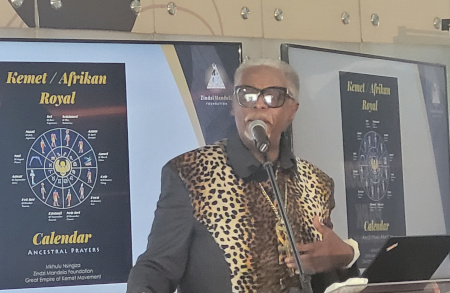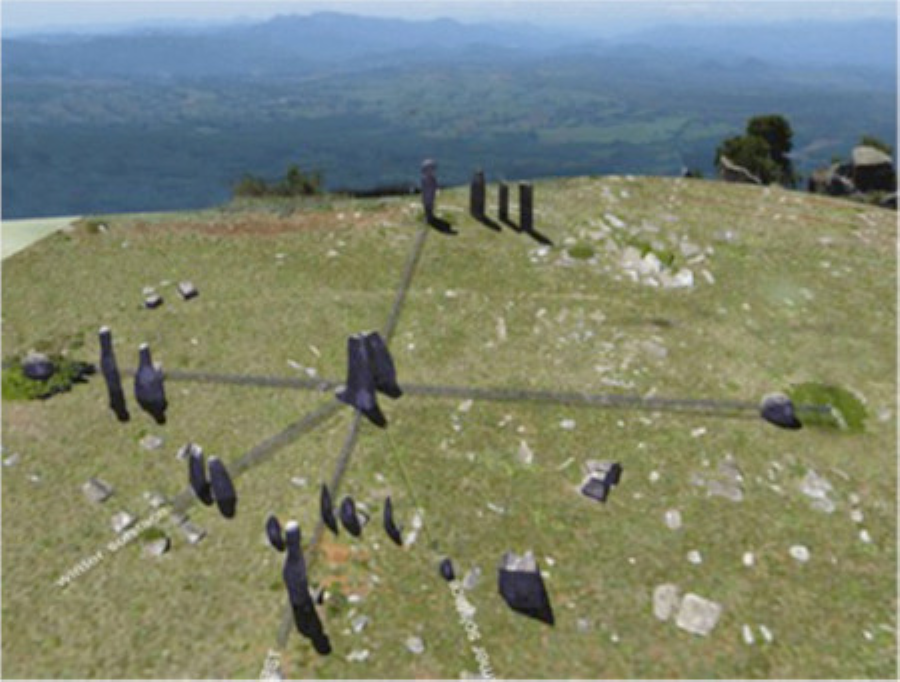Every year on September 23rd, the equinox occurs when the Sun moves into the southern hemisphere, a cosmic event of profound significance. Known as Inzalo ye'Langa, or "Birth of the Sun," this moment heralds the changing of the seasons, signaling warmth, renewal, and growth. Celebrated at Freedom Park, a heritage reserve and museum in Pretoria, South Africa, this day serves as a lens through which to acknowledge and explore Africa's rich history, Indigenous Knowledge Systems (IKS) and global contributions.
Freedom Park, a reflection of humanity's journey
Freedom Park embodies the story of life itself, tracing the origin of the universe, the emergence of Homo sapiens, the development of civilisations and the struggle for freedom. Dr Jane Mufamadi, CEO of Freedom Park, highlighted its role as a living museum that connects South African and global stories of struggle and liberation. The park captures the ideology of total freedom and encourages reflection on humanity's common journey.
During the Inzalo ye'Langa workshop, Dr Motheo Koitsiwe from the Centre for Indigenous Knowledge Systems at Northwestern University facilitated discussions that reconnected ancient knowledge with modern challenges. This event highlighted the re-alignment of African thinking and being and offered perspectives to help navigate the complexities of a rapidly evolving world.

Revealing African Cosmic Wisdom
Dr. NkhuLu Nsingiza (pictured)a keynote speaker and advocate of indigenous African knowledge, delivered a keynote lecture that explored the wisdom of the continent's ancestors. In his work for the Zindzi Mandela Foundation and the Greater Kemetu Empire movement, he emphasizes the African royal calendar, which reflects an ancient understanding of cosmic laws. These meticulous observations, recorded thousands of years ago, laid the foundations of mathematics, physics and science and demonstrate Africa's historical mastery of the intricacies of the universe.
Nsingiza stressed the urgent need to integrate this knowledge into African education systems. He pointed out that colonisation had disrupted these indigenous practices and introduced different systems that separated Africans from their roots. By learning from countries such as India and China, which have effectively used their indigenous knowledge in areas such as agriculture, health and technology, Africa can similarly reclaim its wisdom to promote modernization and self-reliance.
Cradle of the timekeeper
The site known as Inzalo ye'Langa, or Adam's Calendar, located in Mpumalanga, South Africa, is the oldest known calendar dating back 200 000 years, according to some archaeologists. This ancient structure is believed to have tracked the movements of the heavenly bodies, marked significant time periods and guided agricultural and spiritual practices. Its existence demonstrates Africa's deep connection to the universe and its role as the cradle of human ingenuity.
The power of names and the indigenous language
Dr. Nsingizy's research highlights how place names in indigenous languages carry deep meanings that release the energy and essence of these places. For example, Mpumalanga, which means "the place where the sun rises," reflects the cosmic significance of the region and its role in Africa's spiritual heritage. These names serve as tools to reconnect with the land, ancestors and nature.
Africa's growing influence in a changing geopolitical landscape
As the world moves towards multipolarity, Africa's wealth of knowledge and resources makes it a key player in global dynamics. By harnessing its indigenous knowledge systems, Africa can address challenges such as food security, climate change and health crises, while contributing to innovative solutions on the global stage. The awakening of African consciousness, guided by ancestral wisdom, is in line with the broader global desire for sustainability, equity and interconnectedness.
The seminar highlighted how the rediscovery of African heritage and knowledge offers lessons for a world in transition. With a renewed sense of purpose, Africa is poised to assert its influence not as a continent seeking external validation, but as a leader with profound contributions to humanity.
A New Dawn for Africa
Inzalo ye'Langa captures the rebirth of African pride, knowledge and potential. Equanimity symbolises balance and renewal and reflects Africa's journey to reclaim its role in shaping the future. Archaeological discoveries reveal Africa's cosmic heritage, and a deeper connection to the ancestors and the universe sparks a collective awakening.
In this light, Inzalo ye'Langa is not only a celebration of the Sun, but a call to action for Africa to rise up, innovate and inspire - a reminder that the cradle of humanity holds the key to our shared future.
Kirtan Bhana
PHOTO - TDS
TDS/ gnews - RoZ



